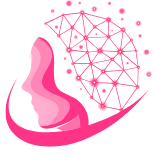There is generative AI tools I can use that they may be slightly more ethical than others?
—The options
No, I don’t think any tool and generating the main players is more ethical than any other. Here is why.
For me, the ethics of the generative use of the IA can be broken down into problems with the way the models develop, specifically, how the data used to train to train -so as concerns about its environmental impact. In order to feed a chat or image generator, an obscene amount of data is required and the decisions that developers have made in the past – and continue to make – to obtain this data deposit are questionable and secretly surrounded. Even the people of Silicon Valley call “Open Source” models hide the training sets of training inside.
Despite the complaints of authors, artists, filmmakers, YouTube creators and even only social media users who do not want their publications to be searched and turned into Chatbot sludge, Ai companies have been It usually involves as if the consent of these creators is not necessary for their production to use -as training data. One of the family claims of AI defenders is that obtaining this large amount of data with the consent of humans who prepared it would be too difficult and would prevent innovation. Even for companies that have reached licensing agreements with large publishers, that “clean” data is an infinitesimal part of the colossal machine.
Although some devs are working on approaches to compensate people fairly when they use their work to form AI models, these projects are still alternative to niche at the main Behemoths.
And then there are the ecological consequences. The current environmental impact of the AI generative use is similar to the main options. Although the AI still represents a small slice of mankind aggregate stress in the environment, gen-ii software tools require much more energy to create and execute than their non-generative counterparts. Using a Chatbot for research assistance is to contribute much more to the climate crisis than to search the website on Google.
The amount of energy needed to execute the tools -new noferencies as the latest Deepseeek Sip Early Energy Resources can be reduced instead of serving, but large companies in the AI seem more interested in accelerating The development that pauses to consider the approaches less harmful to the planet.
How can we become wiser and more ethical more than smarter and more powerful?
–Galaxy brain
Thank you for your wise question, human companion. This situation can be a more common topic of discussion between those tools of generation than you could expect. For example, Anthropic’s “constitutional” approach to his Claude Chatbot attempts to instill a sense of basic values on the machine.
The confusion in the heart of your question goes back to how we talk about the software. Recently, several companies have published models focused on the approaches to “reasoning” and “in thought chain” for research. Describe what tools do with human terms and phrases make the line between human and machine unnecessarily ominous. I mean, if the model can reason truly and have chains of thoughts, why could we not send the software on a self-illumination path?
Because he does not think about it. Words like reasoning, deep thought, understanding: these are only ways to describe how the algorithm processes information. When I pause in the ethics of how these models are trained and the environmental impact, my stance is not based on an amalgam of predictive patterns or text, but on the sum of my individual experiences and beliefs closely.
The ethical aspects of the outings of the AI will always be made back to our human contributions. What are the intentions of the user’s directions when they interact with a Chatbot? What were the biases of the training data? How did the devs teach the boat to respond to controversial queries? Instead of focusing on getting wiser than AI, the real task at its disposal is to cultivate more ethical development practices and users’ interactions.



